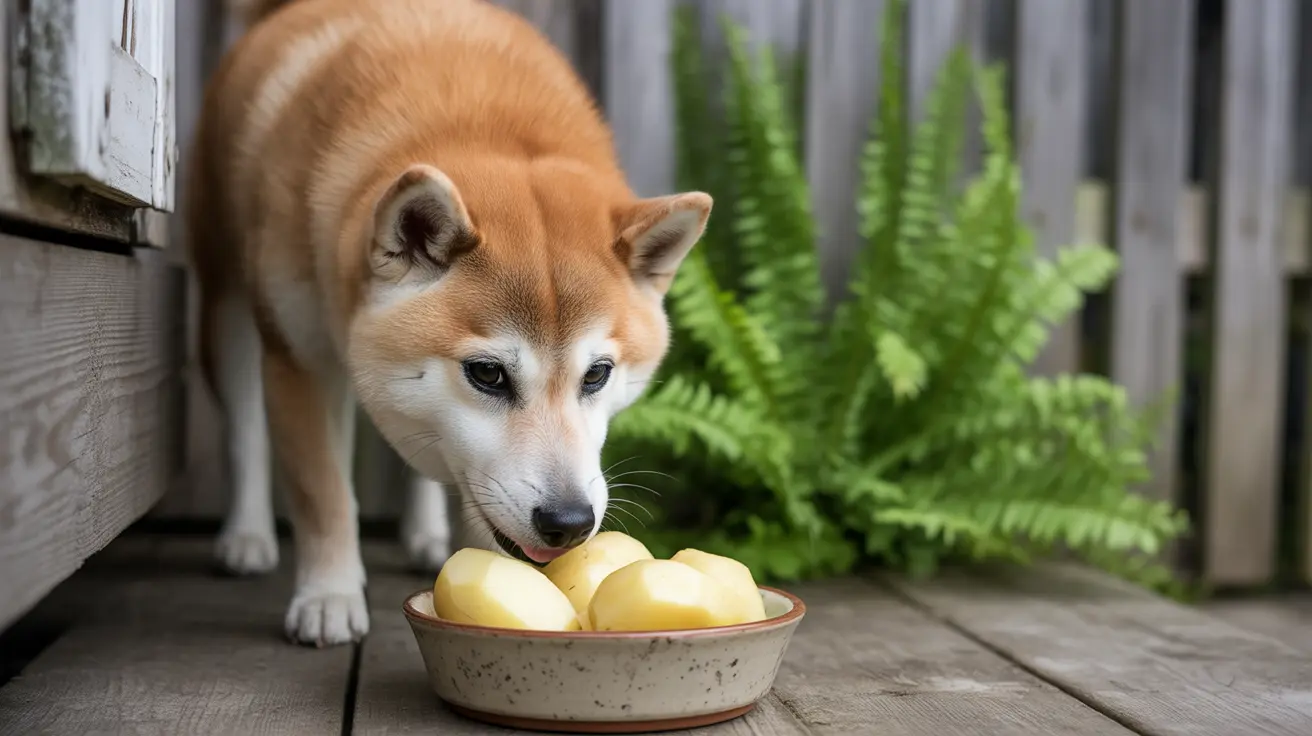Many pet owners wonder about sharing human foods with their canine companions, and potatoes are no exception. While dogs can eat potatoes, there are important guidelines to follow to ensure your pet's safety and health. This comprehensive guide will explore everything you need to know about feeding potatoes to your dog.
Understanding the proper preparation methods, serving sizes, and potential risks is crucial for safely incorporating potatoes into your dog's diet. Let's dive into the essential details that every pet owner should know.
Safe Preparation Methods for Feeding Potatoes to Dogs
When it comes to feeding potatoes to dogs, proper preparation is crucial. Always cook potatoes thoroughly before offering them to your pet. Boiling, baking, or roasting are the safest cooking methods. Never serve raw potatoes, as they contain solanine, a toxic compound that can be harmful to dogs.
Remove all potato skins and ensure the potato is plain - no butter, salt, oils, or seasonings should be added. These additives can cause digestive issues or even be toxic to your dog.
Health Benefits of Cooked Potatoes for Dogs
When prepared properly, potatoes can offer several nutritional benefits for dogs:
- Vitamin C for immune system support
- Vitamin B6 for brain function and red blood cell formation
- Iron for healthy blood
- Magnesium for muscle and nerve function
- Potassium for heart health
However, potatoes should only be an occasional treat, not a dietary staple, as they're high in carbohydrates and can contribute to weight gain if overfed.
Potential Risks and Warning Signs
While cooked potatoes can be safe for dogs, there are several risks to be aware of:
- Raw or green potatoes contain toxic solanine
- Potato skins can be difficult to digest
- Seasoned or processed potato products (chips, fries) are harmful
- Excessive consumption can lead to obesity or blood sugar issues
- Some dogs may have potato allergies
Watch for signs of adverse reactions such as vomiting, diarrhea, lethargy, or allergic responses. If you notice any of these symptoms, discontinue feeding potatoes and consult your veterinarian.
Serving Size Guidelines
When feeding potatoes to your dog, moderation is key. A few small pieces of plain, cooked potato are sufficient as an occasional treat. The exact amount depends on your dog's size, but generally, treats should not exceed 10% of your dog's daily caloric intake.
For first-time potato feeding, start with a tiny amount to monitor for any adverse reactions before offering more.
Frequently Asked Questions
Can dogs safely eat potatoes, and how should they be prepared?
Yes, dogs can safely eat potatoes when they are thoroughly cooked and served plain. Boil, bake, or roast the potatoes without any seasonings, butter, or oils. Always peel the potatoes and ensure they're completely cooled before serving.
Are raw potatoes or potato skins harmful to dogs?
Yes, raw potatoes and potato skins can be harmful to dogs. Raw potatoes contain solanine, a toxic compound that can cause severe illness. Potato skins are difficult to digest and may contain higher concentrations of solanine.
What are the health benefits of feeding cooked potatoes to dogs?
Cooked potatoes provide vitamins C and B6, iron, magnesium, and potassium. However, these nutrients should primarily come from your dog's regular food, with potatoes serving only as an occasional treat.
Can mashed potatoes be given to dogs, and what ingredients should be avoided?
Plain mashed potatoes without any additives are safe for dogs. Avoid adding butter, milk, salt, garlic, onions, or any seasonings, as these can be harmful to dogs.
How much potato can I feed my dog without risking health issues like obesity or diabetes?
Keep potato servings small and occasional - no more than a few small pieces for most dogs. Dogs with diabetes or weight issues should avoid potatoes entirely or consume them only with veterinary approval.
Remember to always consult with your veterinarian before making any significant changes to your dog's diet, especially if your pet has existing health conditions or dietary restrictions.






